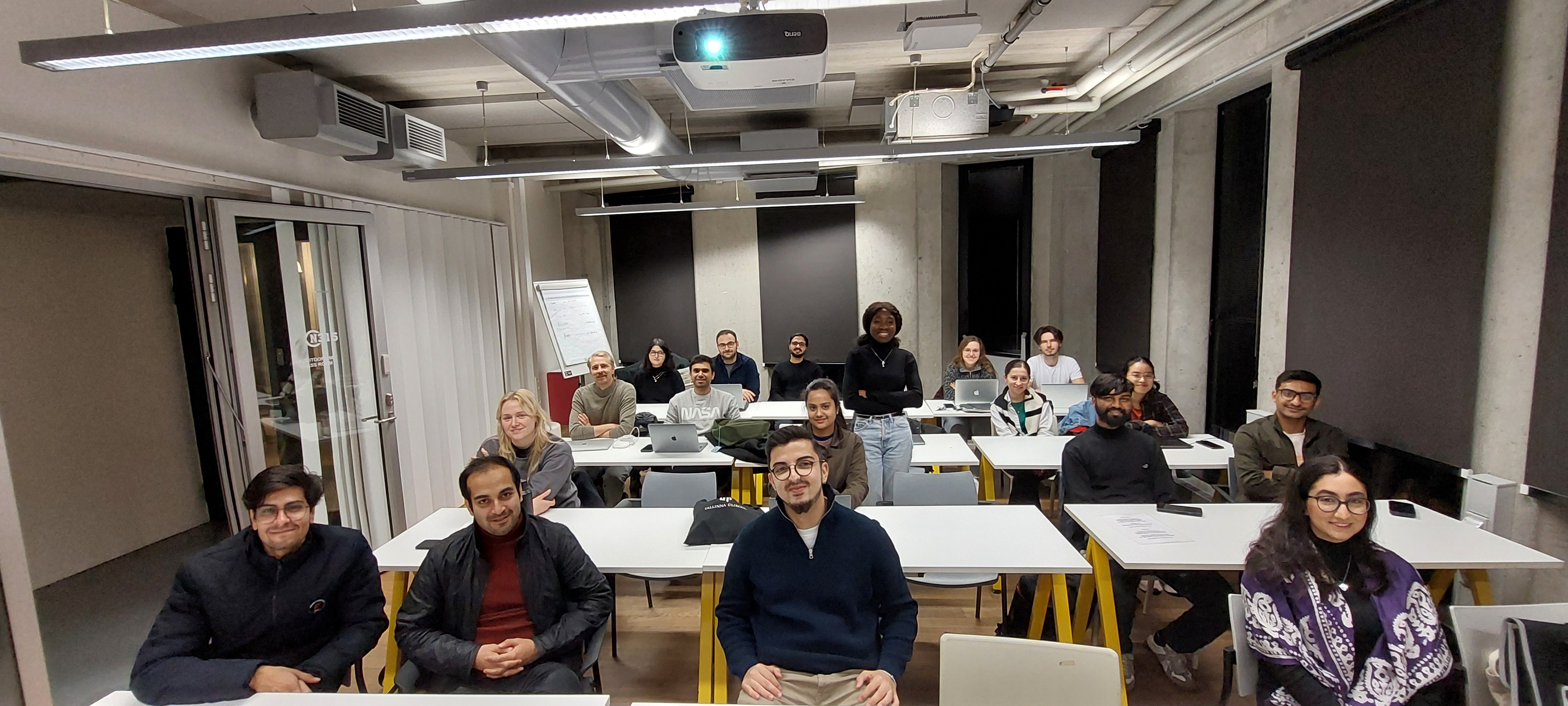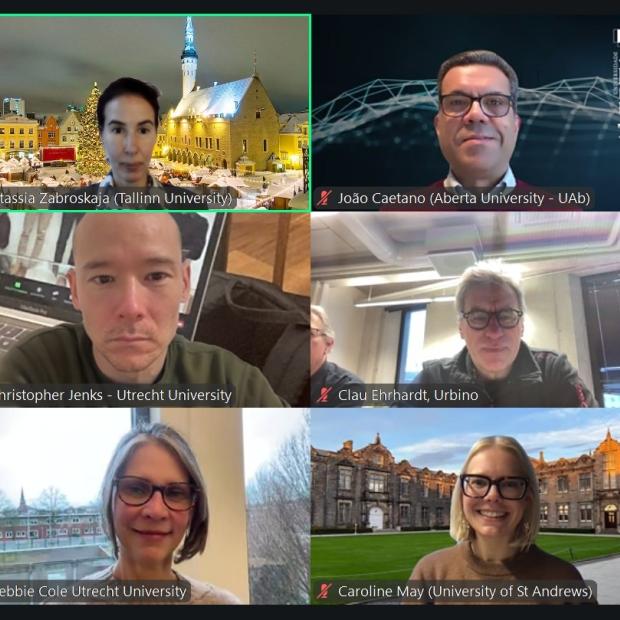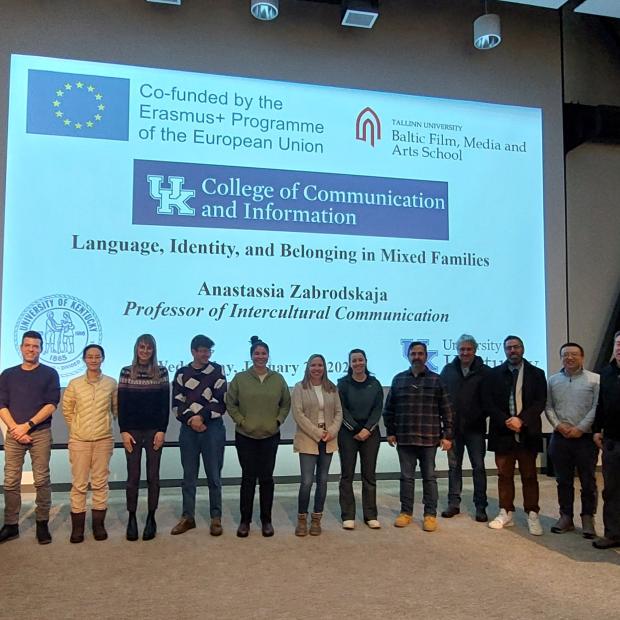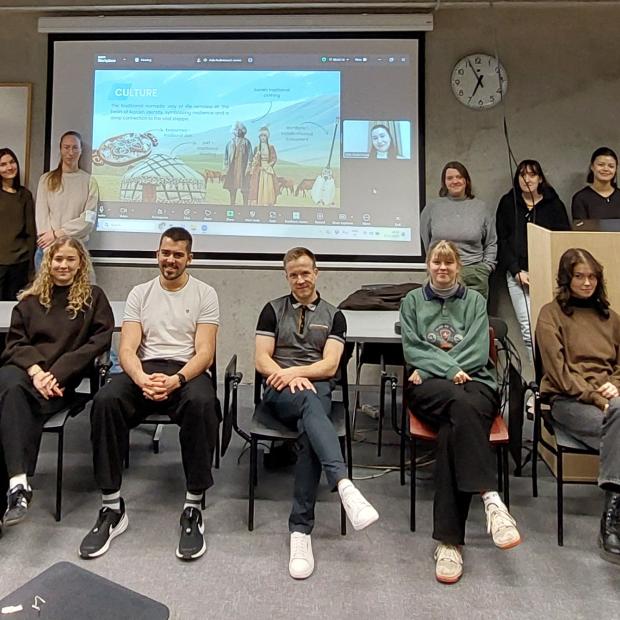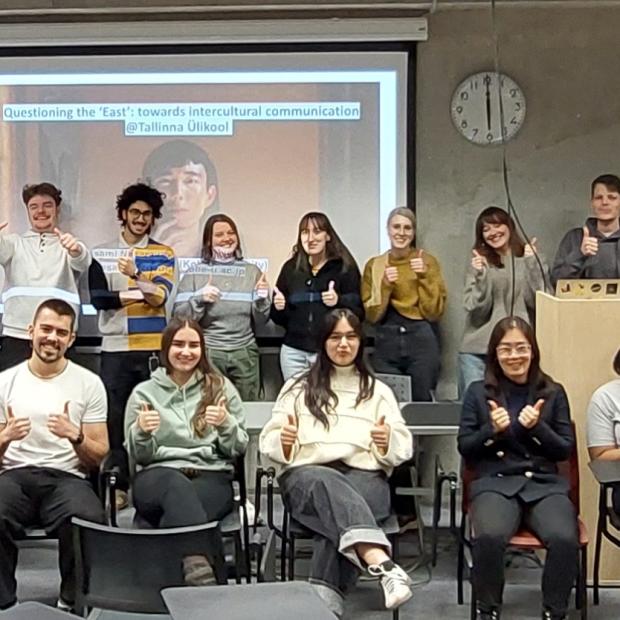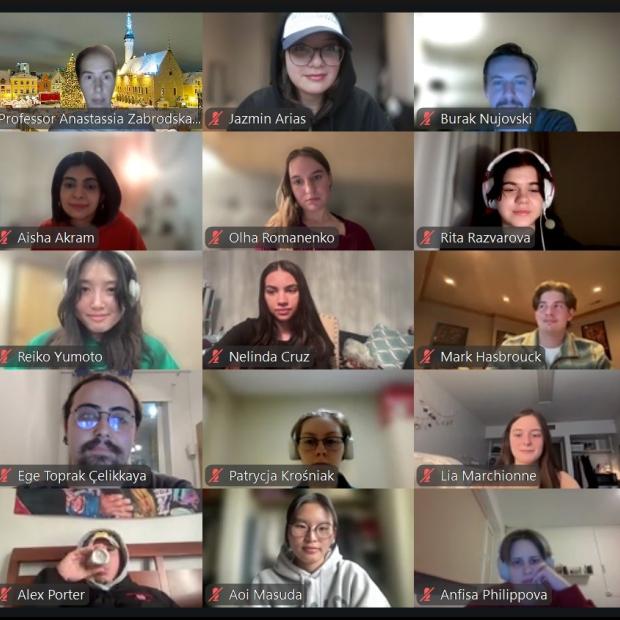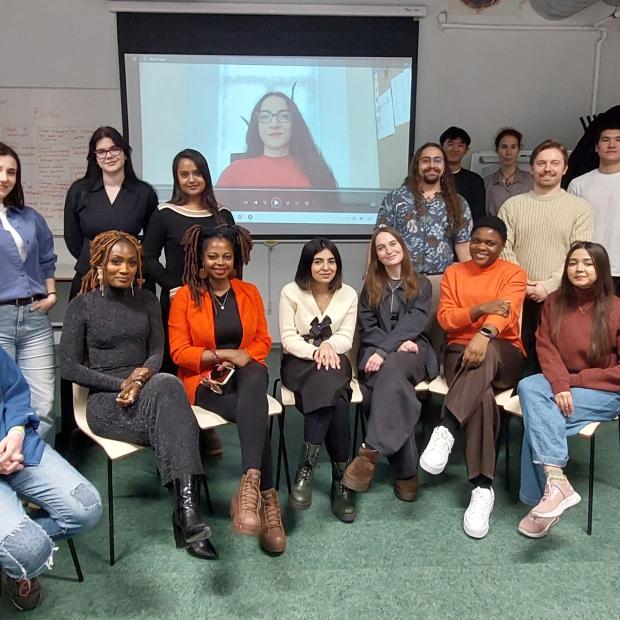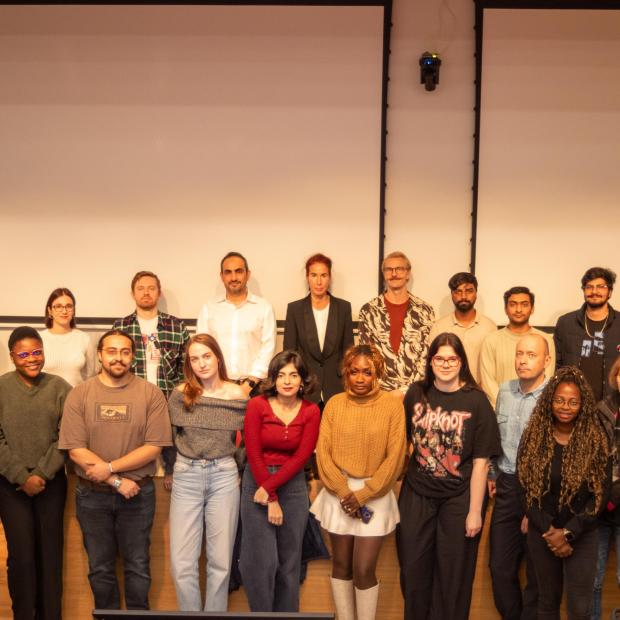Blessing Oyetunde: The most important skill is adaptability
Blessing Oyetunde graduated with honors in communication management from Tallinn University and recently joined the Tallinn University team as a project communication specialist in the Eur-Asia border laboratory of the School of Humanities. Let's find out why he chose communication management.
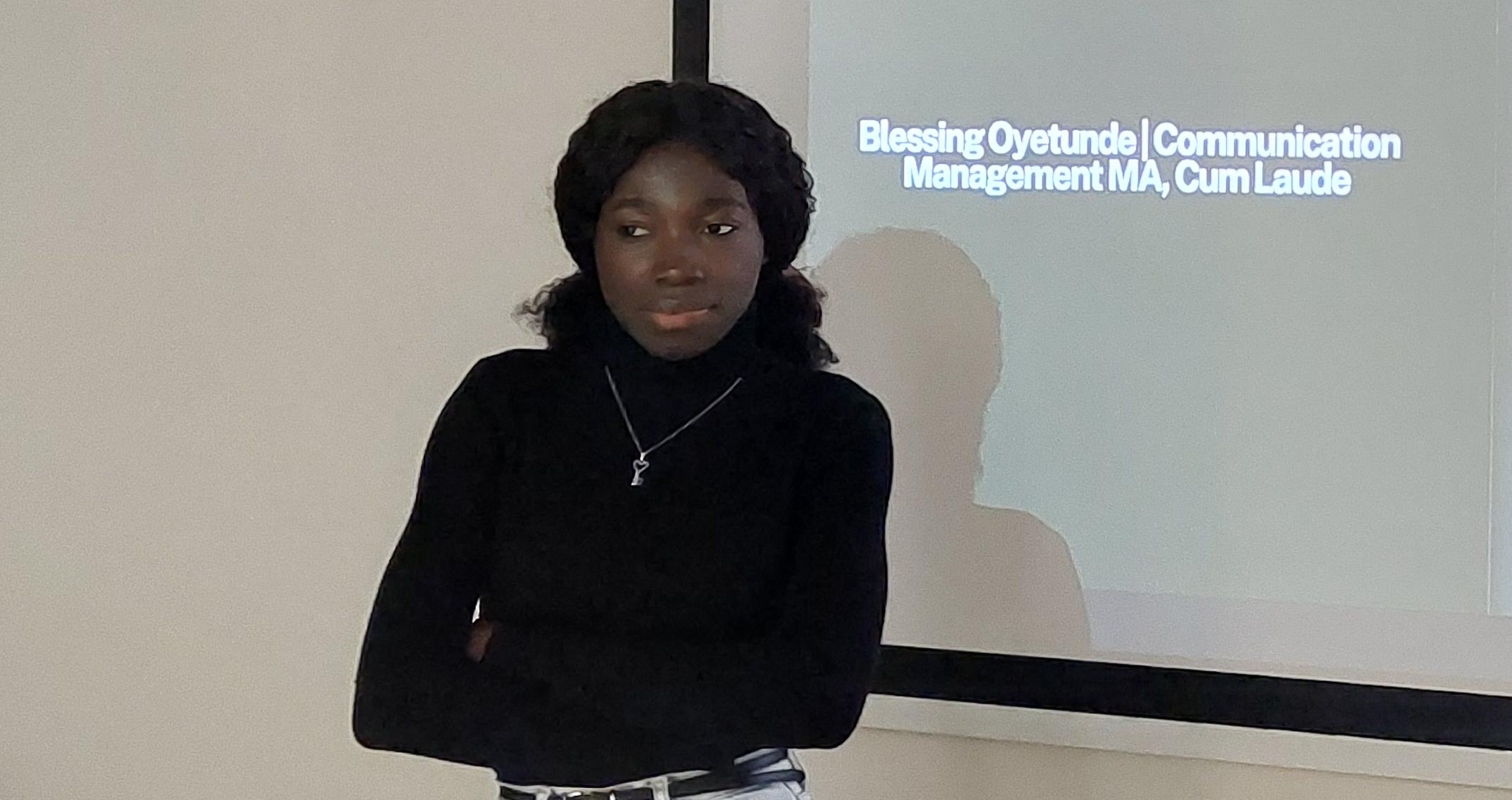
Specialty and year of graduation. What sparked your interest in Communication Management?
I graduated with a master’s degree in Communication Management last year. My interest in communication started with my love for stories and how they shape the world around us, whether influencing societies, building identities, or creating personal connections. Growing up, people often told me I was good at expressing ideas, which made me curious about how communication works on a deeper level.
I also wanted a degree that would give me options, something versatile that could open doors to different industries and career paths. With my undergraduate background in the humanities, Communication Management felt like the perfect fit. It’s a field that combines creativity, strategy, and analysis, and it gave me the tools to grow and adapt in today’s fast-changing world.
What is your current role, and what does it entail?
Currently, I work as a Project Communication Specialist at the Eur-Asian Border Lab within Tallinn University’s School of Humanities. In this role, I manage the lab’s communication strategies, disseminate research findings, and engage with both academic and public audiences, sharing updates about our project and raising awareness about border studies. While this position allows me to apply my expertise in crafting effective narratives, it’s only one facet of my professional journey. I continue to engage in various projects and activities that leverage my skills in communication, strategy, and digital media.
How did your studies in Communication Management at Tallinn University specifically prepare you for the challenges and responsibilities in your current role?
The program at Tallinn University prepared me for far more than my current role, it laid the groundwork for my broader ambitions as a researcher and educator in communication studies. The combination of theoretical courses and practical projects helped me master the complexities of audience analysis, intercultural communication, and strategic messaging. In particular, courses like Super-Diversity & Intercultural Communication, Marketing & Business Communication, and Introduction to Media Management & Economics armed me with critical insights that I continue to use in my work and beyond.
One standout experience was my thesis, “‘I Come Back Stronger than a 90’s Trend’: Taylor Swift’s Positioning and Sustenance as a Human Brand,” which explored audience engagement, brand loyalty, and the nuances of authenticity. This project required me to balance rigorous academic research with creativity, skills that have proven invaluable in both my professional roles and my ongoing aspirations to contribute to academia.
Which professional achievement or initiative are you most proud of?
One of the moments I’m most proud of wasn’t just about the achievement itself, it was about what it symbolised for me. While still in Nigeria, I was offered an opportunity to work with the e-Estonia Briefing Centre, a role that became a turning point in my career. At a time when I felt stuck and uncertain about the future, this opportunity was a glimmer of hope, a reminder that persistence and belief in my abilities could open doors, even from thousands of miles away. Interestingly, the person who facilitated this opportunity was initially a Twitter acquaintance. Years later, she has become not just a colleague but also a mentor and dear friend.
What is something about you that would surprise people to know?
As a child, I developed a unique connection with animals that continues to this day. One of my most vivid memories is rescuing an injured bird my uncle found. I named it Kate and nurtured it for days, determined to save it. Unfortunately, Kate passed away just as she was starting to get better, and I was heartbroken. I couldn’t even bring myself to bury her, so I asked my dad to do it for me.
Later, in my teens, I turned my mom’s chickens into pets. Among them, I had a favourite: SwaySway, named after a cartoon character. SwaySway had such a personality! He recognised me, sometimes running away from me, but other times coming to me voluntarily to play or let me carry and pet him. He was the only chicken to eat out of the palm of my hand without fear. Sadly, one day, SwaySway went missing, and despite searching for him, we never found him. I suspect he was stolen, and it still pains me to think about it. Now, I have two super adorable dogs, Justin and Selena (named after Justin Bieber and Selena Gomez).
A knowledge/lesson that you picked up at BFM and keep in mind on a daily basis:
One lesson that has stayed with me is the importance of adaptability. Communication is an ever-evolving field, and my time at Tallinn University taught me to see change not as a disruption but as an opportunity. This mindset has been invaluable, whether I’m tackling a new challenge at work, refining my long-term goals, or navigating unexpected situations, adaptability ensures that I can keep moving forward.
One piece of advice for future and current BFM Communication Management MA students:
Build meaningful connections with your professors. They are more than just educators; they can become lifelong mentors and invaluable guides. Take the time to engage with them, seek their insights, and involve them in your journey. These relationships can open doors, provide support, and shape your path in ways you might not expect.
